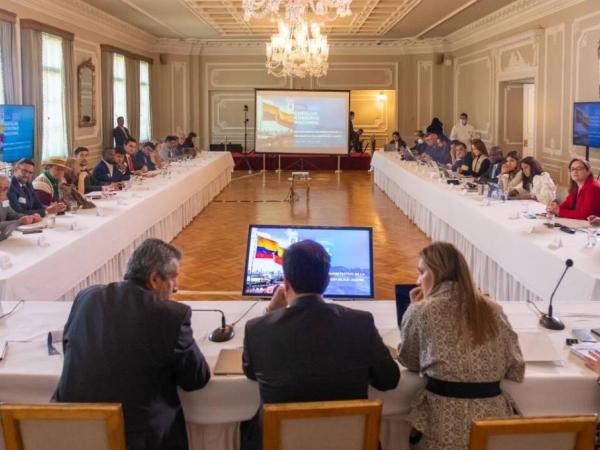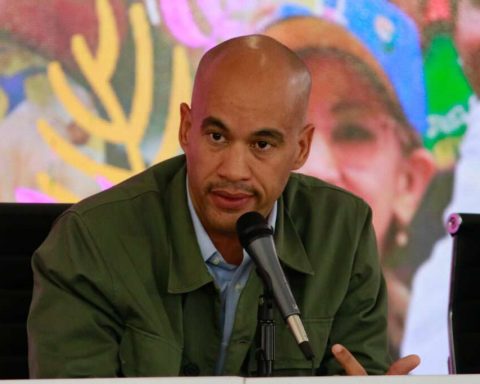When, on July 15, President Gabriel Boric stated that, in the event that the Rejection wins, the constituent process “must continue in the terms agreed upon in the October 25 plebiscite,” that is to say, that a to a new election of conventional, his words not only caused a strong shake in the political class that lasts until today, but also changed the configuration that the political conversation had until then in social networks, where a good part of it was focused on the discussion of the text of the Constitution proposal, without the users taking a stand for either of the two options, to give rise to a conversation about post-plebiscite scenarios, which ended up promoting a greater definition before the referendum on September 4 and, in consequently, a growing decrease in the undecided.
This is part of the conclusions of the second report of thethe Social Listening Lab (SoL-UC), the social network listening laboratory of the Faculty of Communications of the Catholic University, which reviewed all the Twitter posts made by the more than 50,000 accounts that participated in the conversation between the days July 15 and 29 and that used terms associated with the Approval or Rejection of the proposed new Constitution.
Unlike other studies that analyze the volume of publications, the UC report is based on detecting the relevant interactions on the network that manage to influence the constitutional debate, those conversations that, coming from a specific sector or community, manage to impact a community other than your own. Through algorithms with automated relevance criteria, the 200 accounts with the highest level of centrality were detected, that is, capable of connect different communities through their interactions, thus being able to trace a geometry of the network. Under this analysis, the more peripheral the accounts are, the more extreme their positions are, the more they fail to participate in the relevant conversations and fail to influence politically, being rather trapped in their own niche. And, conversely, the more centralized, the greater its influence.
Taking into account that during the first fortnight of July an unusual behavior was observed between communities (where many Rejection accounts were tagging or replying to Approval leaders to criticize them), the Social Media Listening Lab (SoL-UC) added a content categorization of opinions expressed by users, the language used by each option, and the manual characterization of the most important accounts.
“In this way, a network was obtained that displays the most relevant users and communities on Twitter, showing the main trends that are taking place in the digital conversations around the plebiscite, beyond bots and campaigns on social networks”explains Cristián Huepe, co-director of SoL-UC and academic at the Faculty of Communications of the Catholic University.
Decrease in undecided
The network obtained from the study of user opinions during the second half of July presents an elongated structure, with two clearly differentiated poles of similar size, corresponding to the Approval (green color) and Rejection ( color blue). Two other very small and scattered communities are observed (purple and pink), which correspond to media outlets and users for whom an opinion could not be identified.

Check here Increased map of interactions
For Cristián Huepe, this new structure reflects a greater definition in relation to the two options of the next plebiscite, which has caused a considerable decrease in the community that debated regarding the constitutional text without expressing major slogans. “By analyzing the opinions of users who interacted from July 15 –after the President stated his intention to open a new constitutional process if he wins the Rejection–, we observe a change of focus within the constitutional debate, where the conversations that initially debated the content of the text began to evaluate the potential post-plebiscite scenarios”, declares Huepe, adding that “it is likely that this has also motivated a restructuring of the network towards greater polarity.”
For the co-director of SoL-UC, the dynamics of interactions that took place on Twitter from the President’s statements reveals that the conversation has evolved from a triangular structure (composed of a community associated with Approval and two communities related to Rejection , which included the hard core and a third more dispersed pole, where the self-styled yellows, ex-concertacionistas and undecided appeared), to a more definitely polar network, where those who were undecided have tended to take a stand.
I approve increases your influence
In the present report,he Approval community (green) once again has on its periphery the most activist profiles that tend to identify with social mobilization and express themselves in favor of the Government in its interventions. These accounts, according to Cristián Huepe, “They keep interacting mainly with others in their sector, without participating in a broader conversation that manages to gather”. The same situation occurs with the Rejection (blue) community, which presents in its periphery profiles that define themselves as “patriots” and associated with the Republican Party, who, similarly to the most extreme profiles of Approval, make up a subcommunity of interaction away from the center of the conversations, mainly arguing with each other.
Unlike the first report, in which Approval looked weak, without penetrating the center of influence, the photograph taken from the third week of July shows a change in positions, where in the center This network shows a greater presence of the I approve option on the part of national political figures who have managed to influence digital conversations more transversally, by interacting with diverse and relevant users. Among these influential accounts are those of the mayor of La Pintana @ClaudiaPizarroand those of the deputies @vladomirosevic (PL) Y @KarolCariola (PC)in addition to the former constituents @fernando_atria, @Jaime_Bassa Y @patriciapolitz.
Absence of the traditional right in the Rejection
Mostly towards the center of the network, Rejection presents accounts that participate more in the political debate and that tend to be associated to a low extent with the center-right, where the only one that stands out is Mario Desbordes (@desbordes). Instead, users who define themselves as “yellow” appear, and especially figures from the former Concertación, among whom @ximerincon stands out.
Huepe comments that “observing the community of Rejection, the greater participation of political figures from the ex-concertacionista center-left is striking, with an absence of practically all the figures that represent the more traditional Chilean right”.
The actors of the more traditional right are not appearing in this community of Rejection, because although –the researchers explain– they may be generating content, they are not generating quality connections, that is, with relevant people, nor are they being referred by relevant users, nor are they “quality”.
In general terms, the community associated with Rejection on the network shows a lower density of connections than that associated with Approval. This is due, in part, to the fact that the Rejection is subdivided into a community of the extreme right and another of the center-left, which do not interact strongly with each other, while the Approval has mobilized figures with a more contingent political presence, who constantly interact with each other. accounts in your industry.


















